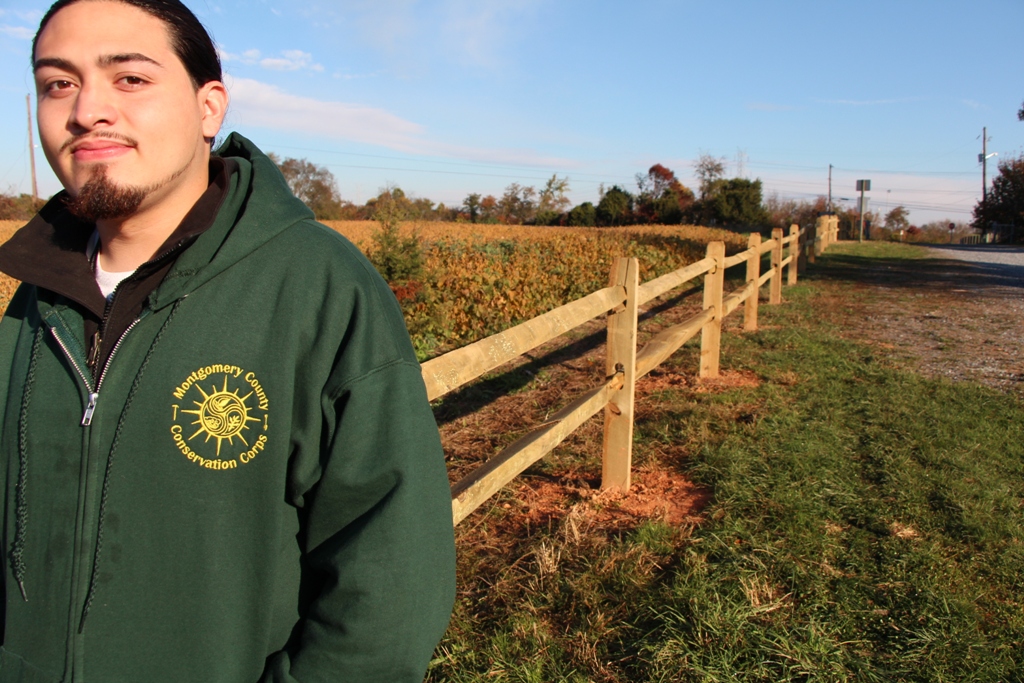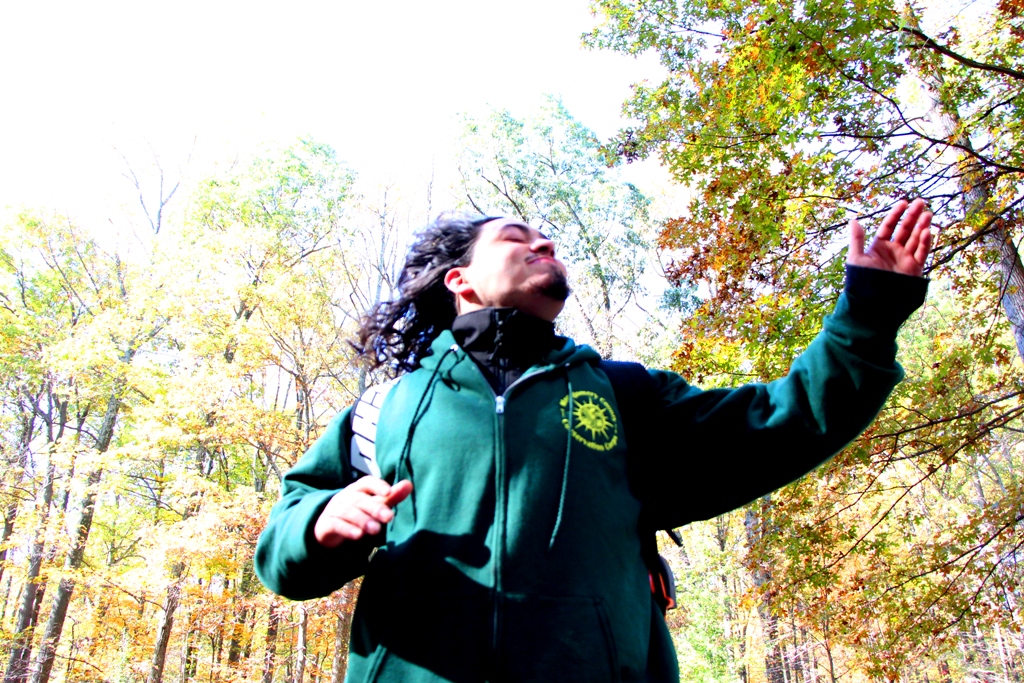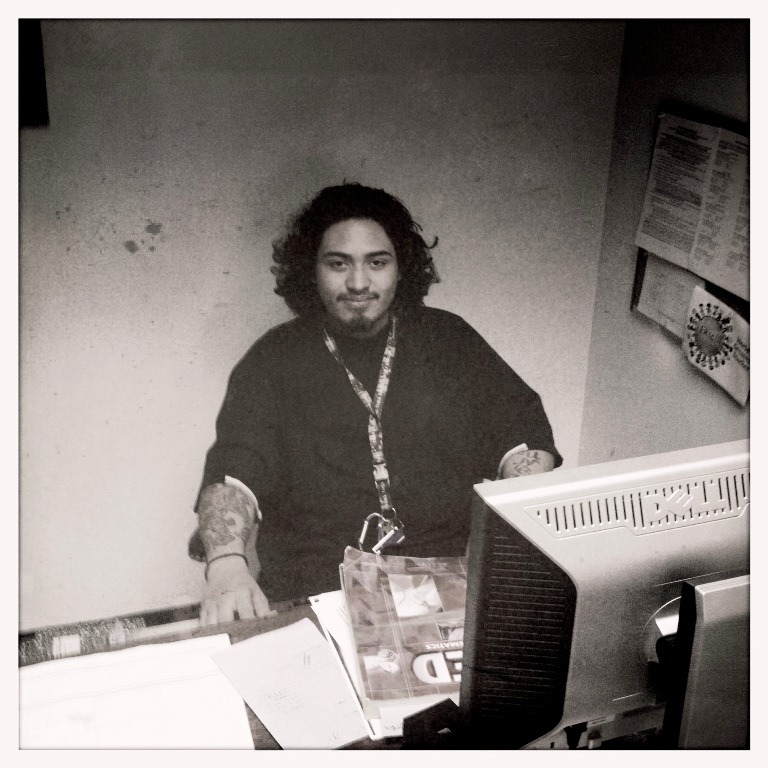
Max Fuentes visited the Latin American Youth Center (LAYC) office in Silver Spring, MD after he saw an advertisement for their GED program. He was excited to learn that LAYC would soon launch a new program – the Montgomery County Conservation Corps (MCCC) – through which he could earn his GED and also have the opportunity to work and receive a stipend.
“It was the GED aspect of the program that I came for in the first place, but what got me more interested was that I could work. I thought, ‘I can get more experience, have something to put on my resume,’” said Max. “When they told me I was going to work, I just thought that sounded good – I didn’t know it was conservation work. But when they told me we’d be doing conservation projects, I definitely got interested. I didn’t know there were careers like this out there. I really like the projects I’ve worked on in the field.”
Now in his second term with the Corps, Max is a Junior Crew Chief Leader. He is responsible for keeping Corpsmembers motivated and managing the food for his crew. Every morning, he separates out the lunch for the afternoon and checks that the Corpsmembers are uniformed before the crew can begin work for the day. When they’re on a project site, Max makes sure all the Corpsmembers work and stay positive.

On class days, Max often helps Corpsmembers with their lessons. Having already passed the GED test, he is familiar with much of the material his classmates need to cover. When he’s not in the classroom, Max sometimes assists Edgar Romero, a fellow Junior Crew Chief Leader, in managing the MCCC Facebook page and producing digital media to promote their work.
In the months since Max joined MCCC, he has learned how to use a variety of tools and recognize various plant and animal species. He says he has developed an appreciation of nature and is seriously considering a career in conservation. Max feels fortunate to have the chance to work in many local parks and network with conservation professionals. Among other projects, Max’s MCCC crew has worked on roofing, tree planting, split-rail fence construction, invasive species removal and bridge construction.
“Before I came here, I didn’t know anything about conservation. Literally, I was clueless. When I saw trails, I thought that people made them just by walking. Then I found out that we do it, but we make it look natural,” said Max. “I learned about poplar trees – that tree name is stuck in my head!…I also learned about invasive species – that they’re species that aren’t supposed to be in this region. I learned how to use different tools, from handsaws to augers. For trails, I learned about how if some trails have been badly built, then when it’s raining, it will all wash away.”
Max has become a voice for LAYC and the Corps. He recently became a member of LAYC’s six-person Youth Advisory Board. This past summer, the online media platform Global Voice Hall released a mini-documentary – “Youth Unemployment: Where Do I Stand in Line?” – featuring an interview with Max about his own experience trying to find opportunity.
“Definitely things would be different for me if I hadn’t found this program. It’s helped me personally because I was a troublemaker. So it’s helped me not be in the streets,” said Max. “Now I’m doing what I’m supposed to do. I’m focusing on my future and helping out the environment. It’s made me a better person. My mentality has changed from being in this program. Now I want to help the community, not destroy it.”






































































